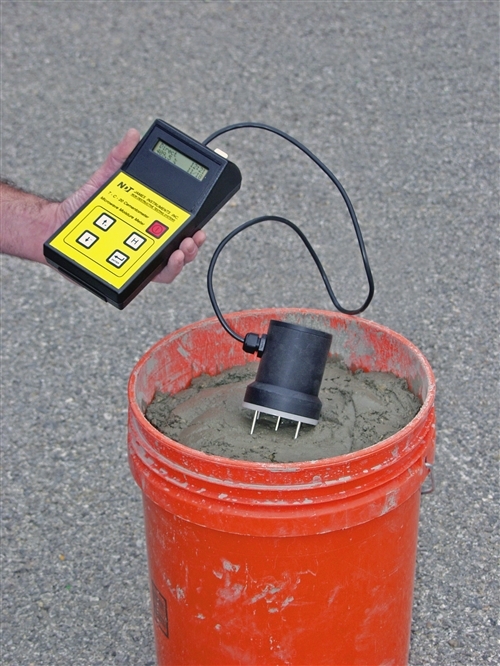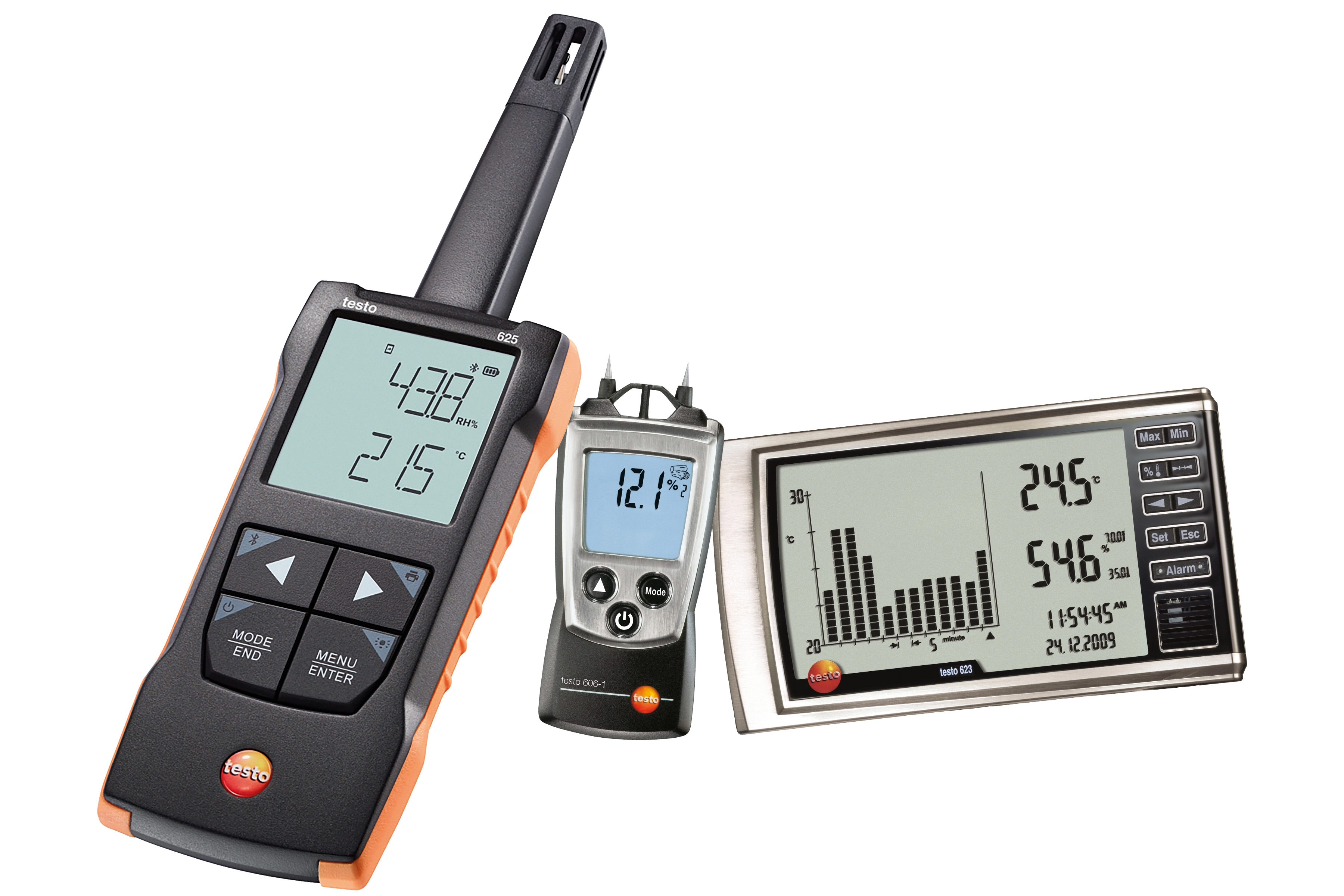The Ultimate Overview to Moisture Meters: A Comprehensive Review and Just How They Can Conserve You Money
In the realm of building maintenance, building, and different industries, the significance of precisely gauging wetness levels can not be overemphasized. Wetness meters work as crucial devices in identifying and checking moisture material in products, aiding in preventing pricey damages and ensuring the top quality of items. Comprehending the subtleties of various kinds of dampness meters, their applications, and the possible cost-saving benefits they supply can be a game-changer for organizations and experts alike. Uncovering how these tools can not only simplify procedures however also add to financial savings is a journey worth embarking on.
Kinds of Moisture Meters
One usual type is the pin-type moisture meter, which determines the electrical resistance in between two pins placed right into a product. Pinless dampness meters, on the other hand, use electro-magnetic sensing unit plates to check a bigger location without causing damage to the material's surface.
Infrared wetness meters determine the thermal residential properties of a material to determine its dampness content non-invasively, making them valuable for applications where pin or pinless meters may not be suitable. Recognizing the different types of dampness meters offered can help markets choose the most appropriate tool for their certain moisture dimension needs.

Benefits of Making Use Of Moisture Meters

Moreover, utilizing moisture meters can lead to enhanced energy efficiency. In agricultural settings, moisture meters play a critical role in optimizing crop yields by enabling farmers to monitor soil wetness levels and make informed irrigation choices.
Just How to Select the Right Moisture Meter
Choosing the suitable wetness meter involves considering key aspects such as product compatibility, measurement range, and calibration precision. When selecting a wetness meter, it's necessary to ensure that the meter appropriates for the details product you will be screening. Different materials have differing electric homes that can affect dampness readings, so choosing a meter developed for your material is vital for exact outcomes. Additionally, take into consideration the measurement series of the moisture meter. Guarantee that the meter can detect moisture levels within the array required for your applications. Calibration precision is an additional crucial variable to keep in mind (Moisture Meter). Select a wetness meter with dependable calibration to make certain constant and specific readings. Some meters may call for periodic calibration modifications, so understanding the calibration process is vital. By meticulously examining these factors, you can select a dampness meter that meets your requirements and offers exact moisture measurements for your jobs.
Proper Techniques for Moisture Meter Use
To guarantee read this precise moisture analyses and maximize the effectiveness of a moisture meter, using proper techniques is essential. When making use of a pin-type dampness meter, put the pins or probes into the product being tested up until they make full call. By following these appropriate techniques, individuals can count on their wetness meter to give credible dampness levels, helping in protecting against expensive damages or ensuring top quality in various applications.

Expense Financial Savings Via Moisture Meter Applications
Exactly how can the critical use of wetness meters lead to substantial expense savings throughout different sectors? Wetness meters play an important role in price savings by protecting against prospective damage and making certain high quality control in different fields. In the agriculture market, moisture meters help in identifying the optimum time for gathering plants, avoiding over-drying or excess wetness that can impact the final item's high quality. This precise monitoring aids farmers avoid unnecessary losses and maximize their return.

In addition, in the food handling industry, dampness meters are crucial for keeping an eye on product high quality and guaranteeing conformity with security policies. By properly determining moisture web content in foodstuff, makers can avoid perishing, preserve freshness, and minimize waste, resulting in substantial expense savings. On the whole, the calculated application of moisture meters is a useful investment that can cause substantial cost decreases and improved effectiveness throughout different industries.
Final Thought
Finally, moisture meters are beneficial tools for gauging and spotting wetness degrees in numerous directory materials. By using the appropriate moisture meter and complying with correct techniques, individuals can efficiently avoid costly problems triggered by excess dampness. Purchasing a top quality dampness meter can result in substantial cost savings in the long run by recognizing potential problems beforehand and enabling prompt remediation. Ultimately, wetness meters are important instruments for preserving the stability article and durability of products and structures.
Dampness meters serve as crucial devices in identifying and keeping an eye on moisture material in materials, aiding in preventing pricey damages and guaranteeing the quality of items. Infrared wetness meters measure the thermal buildings of a product to determine its wetness content non-invasively, making them valuable for applications where pin or pinless meters may not be suitable.Dampness meters provide important benefits in accurately analyzing and monitoring moisture levels in varied materials and environments. In farming settings, wetness meters play an important role in enhancing plant yields by allowing farmers to monitor dirt dampness levels and make educated irrigation decisions.In conclusion, wetness meters are beneficial tools for detecting and determining dampness degrees in various materials.